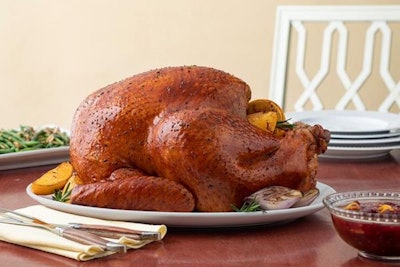
Seaboard Corporation continues to experience losses on its investment in Butterball, but the losses it has faced to date in 2020 are not as large as the ones it encountered in 2019.
Seaboard, which owns a 50% non-controlling stake in Butterball, the largest turkey company in the United States, reported its financial results for the third quarter and first nine months of 2020 on October 27, via a Form 10-Q published on its investor relations website.
The turkey segment of Seaboard Foods saw net sales of $407 million for the quarter, down from the $416 million in sales during the third quarter of 2019. For the first nine months of 2020, the turkey segment’s sales amounted to $1.05 billion, a slight decline from the $1.06 billion for the first nine months of 2020.
While the sales were down, the company’s losses on its Butterball investment narrowed, both for the quarter and the nine-month period. The loss for the quarter was $7 million, an improvement from the $22 million loss from a year ago. For the first nine months of 2020, the loss was $47 million, compared to a $59 million loss during the first nine months of 2019. Loss from affiliates for the quarter were $4 million, not as severe as the $11 million loss during the same period of 2019. For the first nine months, the loss from affiliates declined from $30 million in 2019 to $25 million in 2020.
“The decrease in loss from affiliates for the three-month period of 2020, compared to the same period in 2019, was primarily the result of lower other operating costs, including reduced interest,” the company stated on the Form 10-Q.
“The decrease in loss from affiliates for the nine-month period of 2020 compared to the same period in 2019 was primarily due to higher margins primarily due to lower feed and other live turkey operation growing costs and slightly higher selling prices with more value-added turkey products sold, partially offset by lower volumes of turkey products sold related to a decline in foodservice demand and higher plant costs primarily related to labor.”
Because of the unpredictability of future market prices for turkey products, the cost of feed or the ongoing impacts of COVID-19, Seaboard stated that it could not predict whether its turkey segment would be profitable during the remainder of 2020.


















